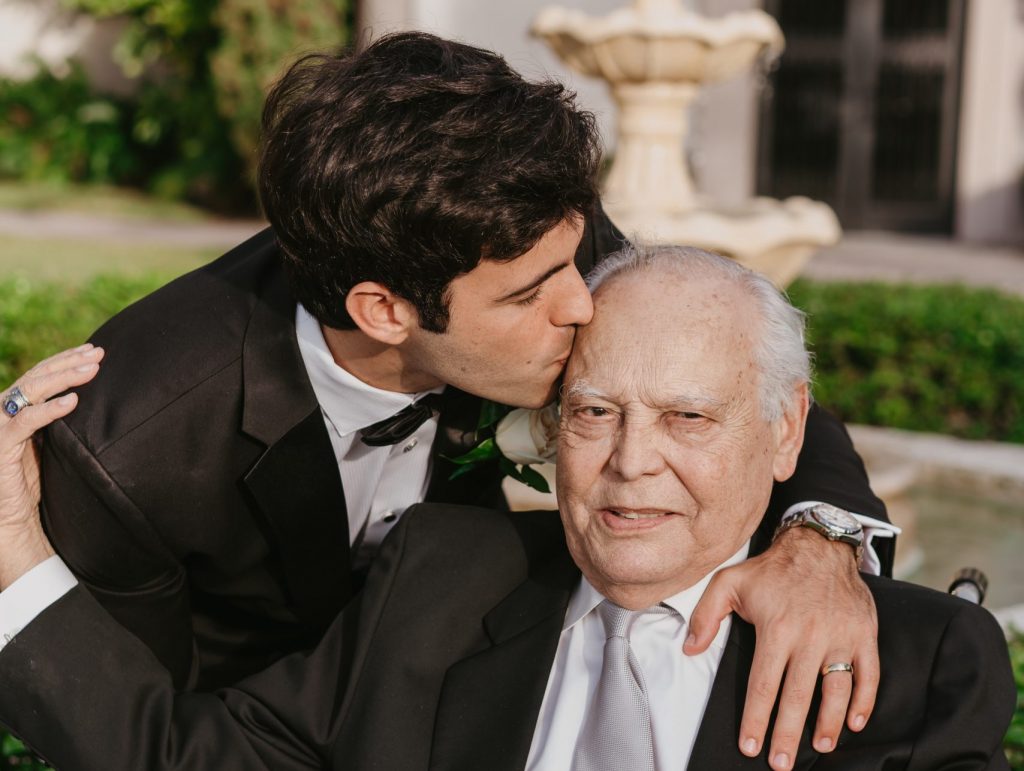My father’s very recent diagnosis of ALS, or Lou Gehrig’s disease, has me and the rest of my family and I in a strange place. We are living in the space between the utterly normal and to-be-expected fact that an 83-year-old man should be facing the imminent end of his life, and the sickly sadness that the news has filled us with. We bounce from feeling that all is normal to feeling tragic several times a day.
It occurs to me that that dizzying shift of perspective when confronting death is something we experience all the time, although generally—and thankfully—in a muted way. Death is the very thing that has happened to every human being ever conceived, whether early and just trembling on the threshold of life, or after many decades, and trembling with the weight of years.
All of us live with the knowledge of this brute fact from the time we are very young, and yet the horror of death coming for someone we love, or for ourselves, inevitably throws us to our knees.
There is the fear of pain and physical incapacity — abilities diminished until there is nothing but tubes, machines, and indignities on the horizon. The anxiety of hoping for a gentle death, a last breath breathed out in peaceful slumber, all the time knowing that for most death will be a violent wrench, perhaps prolonged. And of course, there is the great sadness of impending separation, of happy days together dwindling in number and finally ending.
All this has been amplified in the past year of pandemic, one that has forced everyone to look our natural fear of death square in the face.
Is it different for us Christians? Completely different.
At the very center of our faith is the grand miracle of the resurrection, when our Master conquered death on our behalf. It was, in a sense, the principal reason for His coming, wasn’t it? His whole life on earth was an unflagging progress to that shocking scene on Calvary, when the innocent one meekly endured the most savage death a cruel empire could devise.
He could have “gone gently into that good night,” but instead was wracked and pierced on the cross, enduring the sort of death that we men fear most. And then, after lowering himself into the abyss that awaits each of his creatures, he rose and lived again.
C.S. Lewis put it so well when he said that God “has dived down into the bottom of creation, and has come up bringing the whole redeemed nature on His shoulder.” He has gone ahead and is calling us to join him on the green and sunny fields of the home he has made for us.
This act of God’s makes death different for us Christians. Thanks to His ultimate act of love for us, death has been made infinitely good, no longer a dark and dreadful end of all things, but a necessary passage to the divine encounter. “Sister Death,” St. Francis of Assisi called her, and sang her praises.
I can see my father already participating in that goodness, through all his pain and ours. The certainty of God’s embrace of His own suffering is giving my father strength for the hard road ahead of him, infusing his faltering heart with courage, converting his fear of suffering into tender solicitude for the sadness in our eyes. The firm hope that as Christ has risen, we shall also rise, carries him gently forward. My father nobly trusts.
That doesn’t mean that Christianity simply dismisses the awfulness of death. Our religion gives us a Savior who grieved, weeping, over the death of his friend Lazarus. The Creator, unbound by time, knew that he would raise Lazarus, and yet his heart was moved by the leaden weight of death, by the bereavement of Mary and Martha.
It gives me immeasurable comfort to know that the very human grief we feel when we see our once-indomitable father wait meekly to be moved or fed finds an echo in the heart of God himself. Death is good, yes, because the Master made it so. But we have not been left alone to brave those moments when its horror makes us sick.
I have never been so glad and grateful for my faith in all my life.

